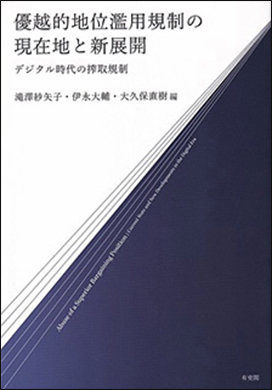-
Articles
Thailand: Trade Competition Commission Issues Three Significant Rulings against Anti-Competitive Activities
On 5 August 2019, the Trade Competition Commission (“TCC”) declared its rulings on three cases petitioned to it during the enforcement of the previous Trade Competition Act (the “1999 Act”) under the authority of the previous commission of Department of Internal Trade, Ministry of Commerce. The three cases concern various anti-competitive activities, such as the abuse of dominant position and unfair trade practice, the details of which are as follows:
1. Abuse of Dominant Position by the Energy Drink Manufacturer
The distributors of an energy drink manufacturer (the “Manufacturer”) complained to the TCC that between October 2011 and July 2012, the Manufacturer prohibited the distributors from selling the competitors’ energy drinks and failure to comply would lead to the distributors being denied supply of its energy drink products. This caused the distributors to suffer damage.
The TCC appointed a sub-committee to inquire and investigate the case. The sub-committee found that the manufacturer had over 50% market shares, and that its sales revenue for last year was in excess of 1,000 million baht. It was therefore considered as a business operator with a dominant position of market power, pursuant to Section 5 of the Act, and misused its dominance power to restrict its distributors to sell or distribute the competitors’ energy drink products with sanction in the event of non-compliance.
This anti-competitive behaviour is considered as an abuse of dominant position by imposing an unfair condition on other business operators which is its trading partner in order to limit the sale of goods or an opportunity to purchase or sell the goods as well as intervening in the business operation of others without any appropriate reason in accordance with Section 25 of the previous Trade Competition Act B.E. 2542 (1999) (Section 50 of the 2017 Act at present). Both the 1999 Act and the 2017 Act criminalises the conduct of abuse of dominant position, which imposes a certain period of imprisonment and/or fines. Additionally, it is also considered an unfair trade practice which causes damage on other business operators under Section 29 of the 1999 Act (Section 57 of the 2017 Act). Having considered the case and concluded its finding, the TCC forwarded the case to the public prosecutor to consider and file the lawsuit against the Manufacturer and its directors in February 2019.
The Manufacturer through its directors sent letters to the TCC requesting for a settlement under Section 79 of the 2017 Act, which was within the TCC’s power to consider a settlement. The TCC took the view that it was appropriate to settle the case by imposing a fine of Baht 12 million which was accepted by the Manufacturer. The fine was paid in full and the case was deemed terminated under the Criminal Procedure Code.
2. Conflict on Sale Promotion Coupons
Two large supermarket companies jointly petitioned to the TCC against a hypermarket group, which is a competitor of these supermarket companies , on the alleged offence of unfair trade practice under the 1999 Act, claiming that the hypermarket group had published advertising brochures containing the message that customers of the said supermarket companies could utilise the coupons received from the supermarket companies at the hypermarket group’s stores and such coupons would be given the double value at its stores. The advertising brochures were handed out to customers in the areas close to the petitioners’ supermarkets.
The TCC ruled against the hypermarket group that it engaged in an unfair trade practice under Section 29 of the 1999 Act (Section 57 of the 2017 Act). However, no penal sanction or administrative fine was determined although Section 29 of the 1999 Act contains a penal sanction, it has been repealed and thus unenforceable, while Section 57 of the 2017 Act holds an administrative punishment; therefore, the hypermarket group could neither be imposed an administrative punishment nor a penal penalty due to the non-retroactivity rule.
However, before the abovementioned ruling was issued, the two petitioners brought a civil lawsuit against the hypermarket group and its director who are responsible for the operation of sales promotion, based on the ground of unlawful conduct under Section 421 of the Civil and Commercial Code which states, “the exercise of a right which can only have the purpose of causing injury to another person is unlawful”. The Supreme Court issued its Judgement No. 6599/2559 in favour of the two plaintiffs that the hypermarket group’s marketing activity, which allows the plaintiffs’ customers to use the sale promotion coupons issued by the plaintiffs at its stores and value of such coupons were double, are considered unlawful. The court orders the hypermarket group to pay the two plaintiffs nearly four million baht in compensation.
3. Unfair Trading Conditions Set by the Agriculture Wholesalers
The TCC received a complaint from a group of farmers in Mae Hong Son Province, Thailand of unfair trade practice of the wholesalers of agricultural products in Chiang Mai Province and Mae Hong Son Province, Thailand. The offending wholesalers allegedly, lowered the purchase price of agricultural products from the farmers and blocked other wholesalers from purchasing such products in the relevant areas. If other wholesalers wish to purchase the agricultural products from the farmers, the purchase price would be fixed by the offending wholesalers. The offending wholesalers claimed that they could do so, since they had distributed the seeds to the farmers for free of charge, enabling them to produce the agricultural products. The farmers and the other wholesalers in these areas had suffered from these anti-competitive behaviours of the offending wholesalers.
The offending wholesalers were found to have been engaged in unfair trade practice by unfairly setting trading conditions that restricts or prevents the business operation of others (wholesalers) under Section 57 (3) of the 2017 Act. The TCC initially imposed an administrative fine of Baht 50,000 which was calculated from the sales turnover of the offending wholesalers, but the TCC decided to reduce the fine to Baht 25,000 due to satisfying cooperation of the offending wholesalers with the investigation. Please note that as the offence was committed between September and October of 2017, the current Act was enforced.
With effective enforcement of the current competition law on the cases mentioned above, it is evident that the Office of Trade Competition Commission has been very active in performing its duties and the authorities under the 2017 Trade Competition Act, to battle against any anti-competitive practices in Thailand. At present, there are still a number of petitions that are still under review and pending investigation. TCC’s rulings on some of those cases are expected to issue soon.
This precedent assists trade competition lawyers to be able to offer strategic advice, ensuring good practice of trade competition in Thailand in order for business operators to compete with other business operators fairly, and assisting newcomers to eradicate obstacles to entering the market.





